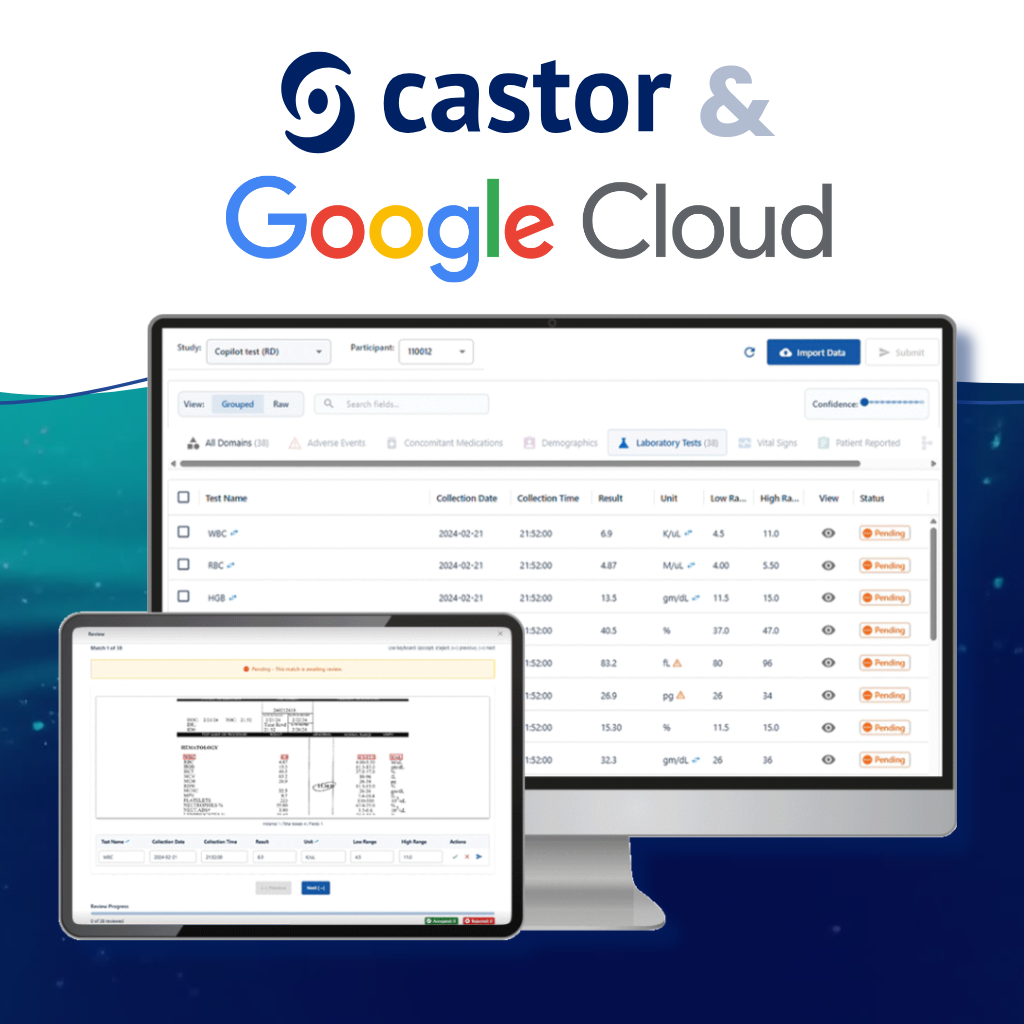Biotech isn’t for the faint-hearted. As Derk Arts, CEO of Castor, and Professor Thomas Wurdinger discussed in their recent LinkedIn Live session, building a successful biotech company demands more than just groundbreaking science. Their conversation, titled “Building Biotech: From Science to Scale,” peeled back the layers on what truly drives success in early-stage biotechs. Spoiler: it’s less about having the best data and more about narrative, execution, and alignment.
Biotech, they argue, is the survival of the funded. It’s a terrain where the loudest story often drowns out the best science. Wurdinger’s own journey underscores this paradox. From his days as an RNA researcher to founding ThromboDx—a diagnostics company acquired by Illumina—and watching it evolve into Grail, his career exemplifies the rare but critical blend of academic depth and commercial savvy.
“Having the best data doesn’t guarantee funding, while poor data can often get you funded fast.”— Thomas Wurdinger
One of the most telling themes from the conversation is how market sentiment frequently trumps scientific merit. The Illumina-Grail case highlights this reality. Regulatory friction, misaligned expectations, and timing can vaporize billions in value overnight. In such a volatile landscape, a great idea needs more than validation; it needs strategy.
Wurdinger’s transition from the lab bench to the boardroom reveals the critical early decisions that separate promising biotechs from perishable ones. His threefold advice? First, founders must seek strong mentors who can help navigate intellectual property (IP), licensing, and fundraising. Second, never sign licensing or investment documents without independent legal counsel—no matter how friendly the university seems. And third, founders need brutal self-awareness: not everyone is meant to be a CEO, and clinging to titles can stall progress.
The tension between data quality and funding viability also took center stage. Many startups, especially those emerging from academic labs, struggle to convince VCs because their innovation doesn’t fit into the typical biotech investment playbook. Unlike therapeutic programs with clear regulatory and clinical pathways, platform or diagnostic companies must often invent their own roadmap—and articulate that roadmap convincingly to investors.
“Pride is your worst enemy when you’re in a startup.”— Thomas Wurdinger
This is where storytelling matters. Investors aren’t just betting on data. They’re betting on a vision, a team, and a well-crafted narrative that explains why now is the time, why this team is the right one, and why this solution matters. That’s why Wurdinger’s investment fund includes a filmmaker as one of the partners—to help founders construct that narrative arc. Because in biotech, your pitch deck is more than a slide show. It’s the first act of a story that investors must want to see through to its final scene.
While robust data underpins credibility, it’s often not the first thing investors see. Especially in early-stage funding, decisions are made based on the team, the problem-solution fit, and the ability to scale. Once a startup progresses, though, clinical readiness becomes critical. This includes preclinical validation, manufacturing scalability via CDMOs or CROs, and FDA registration planning. Without these, clinical trials are non-starters—and timelines slip fast.
Explore Castor’s tools for decentralized and hybrid trials
Wurdinger also offered pragmatic insight into fundraising phases. Many companies bridge the early-stage “valley of death” with government grants (like Eurostars) and local loans. Family, friends, and early believers play a crucial role, albeit a risky one. But to attract serious venture capital, companies need credible leadership, not just science. A seasoned CEO, clear go-to-market strategy, and defensible IP position are often the deciding factors.
Team-building was another recurrent theme. Founders should avoid perfectionism when assembling their leadership team. Instead, they need people who are aligned, resilient, and pragmatic. Equity dilution is not failure; it’s the price of momentum. The value lies in execution, not in retaining 100% of a stalled startup.
“You can’t get the best people in when you’re a startup and basically a nobody in startup land.”- Thomas Wurdinger
For first-time founders, Wurdinger left a final checklist: seek out mentors who challenge you; retain your own legal counsel; build your story before your data; and hire for your blind spots. Passion fuels the journey, but structure sustains it. No matter how disruptive your science, startups don’t scale themselves. They are built, step-by-step, through smart strategy, clinical readiness, and investor trust.
Platforms like Castor play a pivotal role here. As Wurdinger and Arts both noted, accelerating clinical operations through tech-enabled solutions is one of the few defensible edges in an increasingly competitive biotech ecosystem. With modern EDC systems, decentralized trial capabilities, and scalable workflows, Castor helps bridge the gap from hypothesis to human evidence.
The path from science to scale is long, but it’s navigable. With the right story, the right data, and the right team, even the most complex ideas can become transformative companies.


